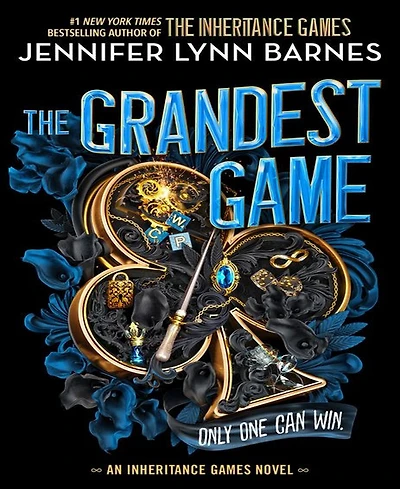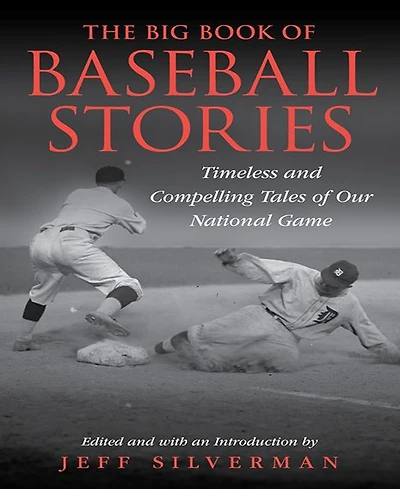Home
The Game
Barnes and Noble
Loading Inventory...
The Game in Bloomington, MN
Current price: $17.99


The Game in Bloomington, MN
Current price: $17.99
Loading Inventory...
Size: CD
Queen
had long been one of the biggest bands in the world by 1980's
The Game
, but this album was the first time they made a glossy, unabashed pop album, one that was designed to sound exactly like its time. They might be posed in leather jackets on the cover, but they hardly sound tough or menacing -- they rarely rock, at least not in the gonzo fashion that's long been their trademark. Gone are the bombastic orchestras of guitars and with them the charging, relentless rhythms that kept
grounded even at their grandest moments. Now, when they rock, they'll haul out a clever
rockabilly
pastiche, as they do on the tremendous
"Crazy Little Thing Called Love,"
a sly revival of old-time
rock & roll
that never sounds moldy, thanks in large part to
Freddie Mercury
's panache. But even that is an exception to the rule on
. Usually, when they want to rock here, they wind up sounding like
Boston
, as they do on
John Deacon
's
"Need Your Loving Tonight,"
or they sound a bit like a
new wave
-conscious rocker like
Billy Squier
, as they do on the propulsive
"Coming Soon."
But even those are exceptions to the overall rule on
, since most of the album is devoted to
disco
-
rock
blends -- best heard on the globe-conquering
"Another One Bites the Dust,"
but also present in the unintentionally kitschy positivity anthem
"Don't Try Suicide"
-- and the majestic power
ballads
that became their calling card in the '80s, as they reworked the surging
"Save Me"
and the elegant
"Play the Game"
numerous times, often with lesser results. So,
winds up as a mixed bag, as many
albums often do, but again the striking difference with this album is that it finds
turning decidedly, decisively
pop
, and it's a grand, state-of-the-art circa 1980
album that still stands as one of the band's most enjoyable records. But the very fact that it does showcase a band that's turned away from
and toward
means that for some
fans, it marks the end of the road, and despite the album's charms, it's easy to see why. ~ Stephen Thomas Erlewine
had long been one of the biggest bands in the world by 1980's
The Game
, but this album was the first time they made a glossy, unabashed pop album, one that was designed to sound exactly like its time. They might be posed in leather jackets on the cover, but they hardly sound tough or menacing -- they rarely rock, at least not in the gonzo fashion that's long been their trademark. Gone are the bombastic orchestras of guitars and with them the charging, relentless rhythms that kept
grounded even at their grandest moments. Now, when they rock, they'll haul out a clever
rockabilly
pastiche, as they do on the tremendous
"Crazy Little Thing Called Love,"
a sly revival of old-time
rock & roll
that never sounds moldy, thanks in large part to
Freddie Mercury
's panache. But even that is an exception to the rule on
. Usually, when they want to rock here, they wind up sounding like
Boston
, as they do on
John Deacon
's
"Need Your Loving Tonight,"
or they sound a bit like a
new wave
-conscious rocker like
Billy Squier
, as they do on the propulsive
"Coming Soon."
But even those are exceptions to the overall rule on
, since most of the album is devoted to
disco
-
rock
blends -- best heard on the globe-conquering
"Another One Bites the Dust,"
but also present in the unintentionally kitschy positivity anthem
"Don't Try Suicide"
-- and the majestic power
ballads
that became their calling card in the '80s, as they reworked the surging
"Save Me"
and the elegant
"Play the Game"
numerous times, often with lesser results. So,
winds up as a mixed bag, as many
albums often do, but again the striking difference with this album is that it finds
turning decidedly, decisively
pop
, and it's a grand, state-of-the-art circa 1980
album that still stands as one of the band's most enjoyable records. But the very fact that it does showcase a band that's turned away from
and toward
means that for some
fans, it marks the end of the road, and despite the album's charms, it's easy to see why. ~ Stephen Thomas Erlewine
Queen
had long been one of the biggest bands in the world by 1980's
The Game
, but this album was the first time they made a glossy, unabashed pop album, one that was designed to sound exactly like its time. They might be posed in leather jackets on the cover, but they hardly sound tough or menacing -- they rarely rock, at least not in the gonzo fashion that's long been their trademark. Gone are the bombastic orchestras of guitars and with them the charging, relentless rhythms that kept
grounded even at their grandest moments. Now, when they rock, they'll haul out a clever
rockabilly
pastiche, as they do on the tremendous
"Crazy Little Thing Called Love,"
a sly revival of old-time
rock & roll
that never sounds moldy, thanks in large part to
Freddie Mercury
's panache. But even that is an exception to the rule on
. Usually, when they want to rock here, they wind up sounding like
Boston
, as they do on
John Deacon
's
"Need Your Loving Tonight,"
or they sound a bit like a
new wave
-conscious rocker like
Billy Squier
, as they do on the propulsive
"Coming Soon."
But even those are exceptions to the overall rule on
, since most of the album is devoted to
disco
-
rock
blends -- best heard on the globe-conquering
"Another One Bites the Dust,"
but also present in the unintentionally kitschy positivity anthem
"Don't Try Suicide"
-- and the majestic power
ballads
that became their calling card in the '80s, as they reworked the surging
"Save Me"
and the elegant
"Play the Game"
numerous times, often with lesser results. So,
winds up as a mixed bag, as many
albums often do, but again the striking difference with this album is that it finds
turning decidedly, decisively
pop
, and it's a grand, state-of-the-art circa 1980
album that still stands as one of the band's most enjoyable records. But the very fact that it does showcase a band that's turned away from
and toward
means that for some
fans, it marks the end of the road, and despite the album's charms, it's easy to see why. ~ Stephen Thomas Erlewine
had long been one of the biggest bands in the world by 1980's
The Game
, but this album was the first time they made a glossy, unabashed pop album, one that was designed to sound exactly like its time. They might be posed in leather jackets on the cover, but they hardly sound tough or menacing -- they rarely rock, at least not in the gonzo fashion that's long been their trademark. Gone are the bombastic orchestras of guitars and with them the charging, relentless rhythms that kept
grounded even at their grandest moments. Now, when they rock, they'll haul out a clever
rockabilly
pastiche, as they do on the tremendous
"Crazy Little Thing Called Love,"
a sly revival of old-time
rock & roll
that never sounds moldy, thanks in large part to
Freddie Mercury
's panache. But even that is an exception to the rule on
. Usually, when they want to rock here, they wind up sounding like
Boston
, as they do on
John Deacon
's
"Need Your Loving Tonight,"
or they sound a bit like a
new wave
-conscious rocker like
Billy Squier
, as they do on the propulsive
"Coming Soon."
But even those are exceptions to the overall rule on
, since most of the album is devoted to
disco
-
rock
blends -- best heard on the globe-conquering
"Another One Bites the Dust,"
but also present in the unintentionally kitschy positivity anthem
"Don't Try Suicide"
-- and the majestic power
ballads
that became their calling card in the '80s, as they reworked the surging
"Save Me"
and the elegant
"Play the Game"
numerous times, often with lesser results. So,
winds up as a mixed bag, as many
albums often do, but again the striking difference with this album is that it finds
turning decidedly, decisively
pop
, and it's a grand, state-of-the-art circa 1980
album that still stands as one of the band's most enjoyable records. But the very fact that it does showcase a band that's turned away from
and toward
means that for some
fans, it marks the end of the road, and despite the album's charms, it's easy to see why. ~ Stephen Thomas Erlewine
![Wellspring [Barnes & Noble Exclusive]](https://prodimage.images-bn.com/pimages/0884501047746_p0_v1_s600x595.jpg)
![C'mon [Barnes & Noble Exclusive]](https://prodimage.images-bn.com/pimages/0751937362326_p0_v1_s600x595.jpg)

![GOLDEN [SUBSTANCE] [Barnes & Noble Exclusive]](https://prodimage.images-bn.com/pimages/0196922572838_p0_v1_s600x595.jpg)
![Now Playing [Barnes & Noble Exclusive]](https://prodimage.images-bn.com/pimages/0081227818357_p0_v2_s600x595.jpg)



![GAME PLAN [Photobook Album Red Ver.] [Barnes & Noble Exclusive]](https://prodimage.images-bn.com/pimages/0602458344219_p0_v4_s600x595.jpg)

![Shadowland [Barnes & Noble Exclusive]](https://prodimage.images-bn.com/pimages/0093624920434_p0_v2_s600x595.jpg)






